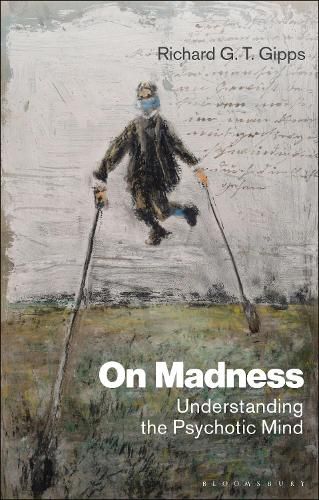Readings Newsletter
Become a Readings Member to make your shopping experience even easier.
Sign in or sign up for free!
You’re not far away from qualifying for FREE standard shipping within Australia
You’ve qualified for FREE standard shipping within Australia
The cart is loading…






Can we reach the psychotic subject in their delusion? Psychopathological theorists often try to find a way to characterise this subject’s inner predicament so that their opaque utterances and actions will now rationally hang together. In this pathbreaking work, philosopher and clinical psychologist Richard G. T. Gipps demonstrates how such efforts at rational retrieval actually result in us setting our face against the psychotic subject in their distress.
Bringing together patient memoir, psychopathological observation and philosophical thought, Gipps offers a profound alternative. On the one hand he shows how, by appreciating just why we can’t locate rational order within psychotic thought, we can better understand what it is to suffer delusion and psychosis. On the other, he recovers for us the value of such expressive, motivational and symbolic forms of understanding as only become available once we’ve been turned away at reason’s door. In such ways Gipps not only solves the psychopathological problem of delusion, but also shows us how to bear a truer witness to the psychotic subject in their brokenness, pain and despair.
$9.00 standard shipping within Australia
FREE standard shipping within Australia for orders over $100.00
Express & International shipping calculated at checkout
Can we reach the psychotic subject in their delusion? Psychopathological theorists often try to find a way to characterise this subject’s inner predicament so that their opaque utterances and actions will now rationally hang together. In this pathbreaking work, philosopher and clinical psychologist Richard G. T. Gipps demonstrates how such efforts at rational retrieval actually result in us setting our face against the psychotic subject in their distress.
Bringing together patient memoir, psychopathological observation and philosophical thought, Gipps offers a profound alternative. On the one hand he shows how, by appreciating just why we can’t locate rational order within psychotic thought, we can better understand what it is to suffer delusion and psychosis. On the other, he recovers for us the value of such expressive, motivational and symbolic forms of understanding as only become available once we’ve been turned away at reason’s door. In such ways Gipps not only solves the psychopathological problem of delusion, but also shows us how to bear a truer witness to the psychotic subject in their brokenness, pain and despair.